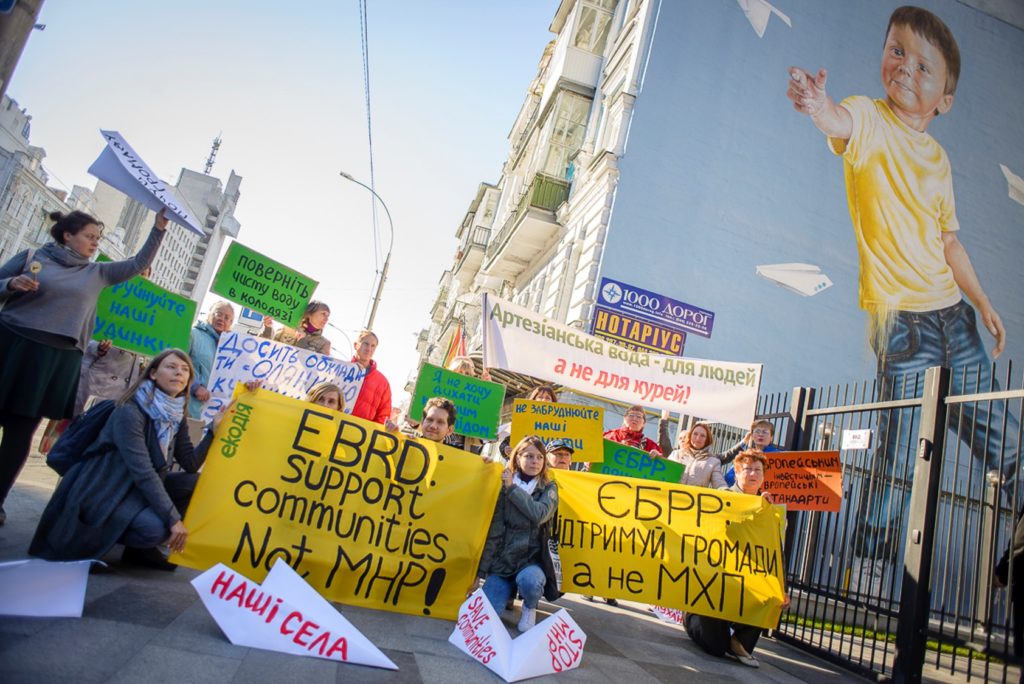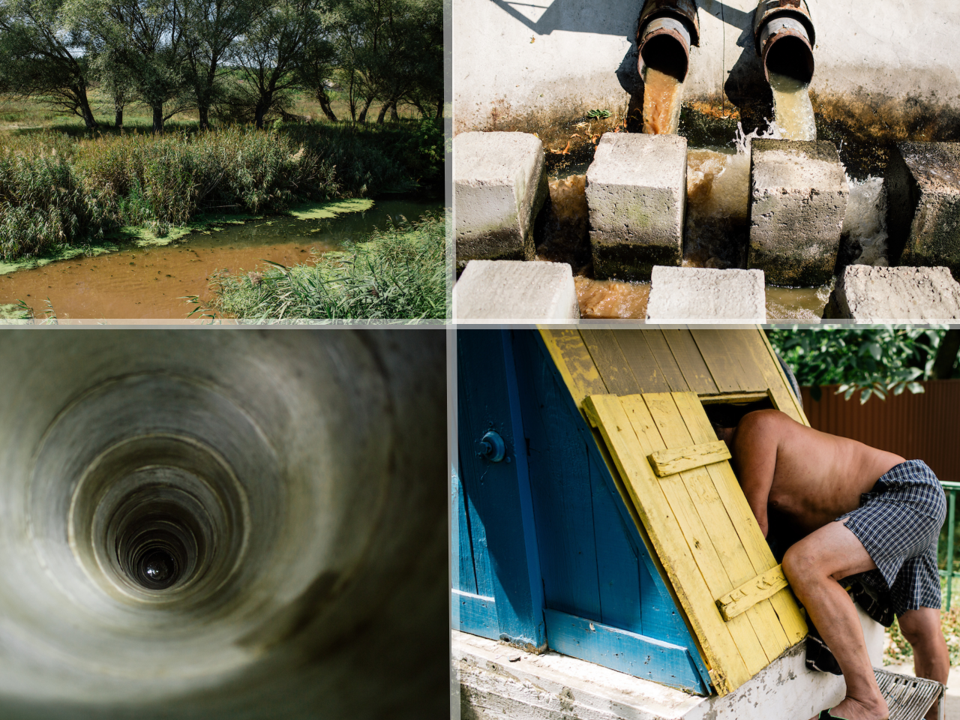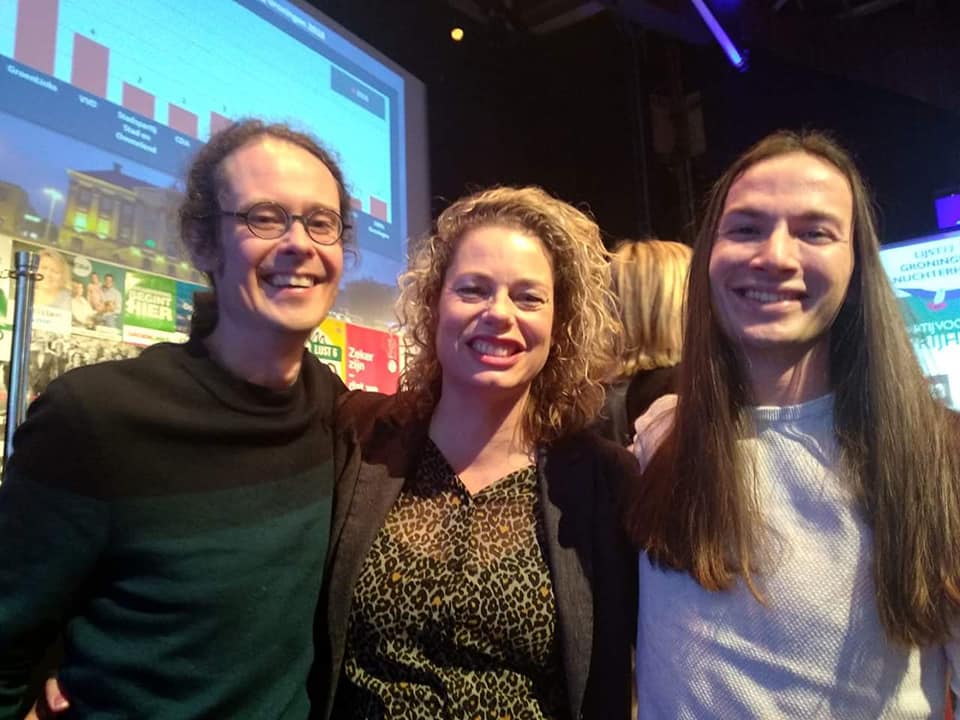Worldlog Esther Ouwehand 27 de noviembre de 2018
The international movement of animal rights is in a breakthrough phase. Everywhere, more and more people are standing up against the injustice that is being done to animals and our planet. This movement is also getting increasingly more media attention. I recently spoke with a journalist of the Financial Times about the necessity of a politics based on compassion. Do you remember that in my previous worldlog I expressed my admiration for the new animal-friendly politicians and local animal protectors in Moldavia, the poorest country of Europe? Apparently, those super heroes are getting increasingly more attention from the Moldavian national media, and they are given the chance to educate people about the horrors of factory farming and to tell them about how to do things differently. It fills me with hope that more and more people, all over the world, are standing up in public for animals and are spreading awareness as a result. Even in the poorest countries. Because those people already know: compassion doesn’t cost anything.

Ukrainians object to factory farming
Also people in Ukraine are objecting to destructive factory farming. Increasingly more citizens suffer health complaints and see their environment being destroyed by new giga stables where thousands of animals are kept under horrific circumstances. During our international conference this summer in The Hague, conservationists and environmentalists of the Ukrainian organisation Ecoaction told us everything about the horrendous effects of growing factory farming in their country. At the same time, they told us a reassuring story about how they, together with local people, do everything possible to stop this destructive industry. The Guardian wrote an interesting article about it.

Living environment polluted by factory farming in Ukraine
But, unfortunately, these Ukrainian citizens and environmentalists also have to fight against international financial institutions and against the development and trade policy of the European Union (EU). Currently, a large part of development funds and funds of Western companies go to mega stables in Ukraine. The Party for the Animals has already brought up the Dutch role in these incorrect investments in the Lower House. A couple of years ago, we already warned that the controversial association treaty between the EU and Ukraine would particularly entail a great deal of trouble: not just for animals, nature and the environment, but also for many people in Ukraine. The Dutch people voted against the treaty, but the Dutch government again buried its head in the sand and opened up its doors to factory farms, which do not even meet the already weak European standards. Who turn out to be the beneficiaries in Ukraine? Mainly a handful of very rich Ukrainians and intensive factory farms, while the population has to bear the societal costs. Unacceptable.
So many people in Great Britain have now stopped consuming meat and dairy products that they do not have enough chef cooks to meet the new demand for vegetable dishes. We have filed several motions in the Lower House to include more veg(an) food in Dutch chef cook trainings, so that trainings will better meet the market demand.
We also achieved a breakthrough this month: thanks to our pleadings for more vegetable foods at our government institutions, the Dutch Ministry of Education, Culture and Science has opted for vegetarian food by default. In future, the ministry will by default only serve vegetarian or vegan food. Meat will only be served if people specifically ask for it. On our way to a sustainable, animal-friendly food culture.
Even the best-known sausage maker of the Netherlands is now convinced that the (near) future will be vegetal. This traditional meat company introduced four new products and did so perfectly: the products are 100% vegetable and also palm oil free. Perfect for animals, the environment and for all of us in the end.

Party for the Animals team in Groningen celebrates its win in the municipal elections
And finally, some more fantastic election news: last week, the Party for the Animals tripled its seats in the Dutch municipality of Groningen! It is incredibly important that we make our powerful voice heard for animals and our planet, both internationally and locally. Our municipal council party group of Alkmaar, for example, recently set a good example: this month, they decided that in future all vet costs for stray animals will be paid by the municipality. We also continue to fight internationally because animal rights, nature and the environment know no boundaries.
On 2 December next, our Spanish sister party PACMA will participate in the regional elections in Andalusia. 6.5 million inhabitants can then vote for a more beautiful future for our planet. Good luck, PACMA team!
Greetings!
Esther Ouwehand
Parliamentary leader of the Dutch Party for the Animals in the Lower House
El movimiento internacional por los derechos de los animales ha entrado en una fase de avance. En todas partes, cada vez más personas se oponen a la injusticia que se está haciendo a los animales y a nuestra tierra. Ese movimiento también recibe cada vez más atención de los medios de comunicacion. Recientemente hablé con un periodista del Financial Times sobre la necesidad de una política basada en la compasión. ¿Recuerdas que en mi Worldlog pasado exprese mi admiracion por los políticos nuevos que quieren a los animales y a los protectores de animales locales en Moldavia, el país más pobre de Europa? Estos superhéroes ahora parecen recibir cada vez más atención de los medios nacionales moldavos, donde se les da el espacio para educar a la gente sobre los horrores en la industria ganadera y para decirles cómo se pueden hacer las cosas de manera diferente. Me llena de esperanza que cada semana mas personas se unen, provenientes de todas partes difundirendo asi la conciencia alrededor del tema. Incluso en los países más pobres. Porque esas personas mas que nadie saben: la compasión no cuesta un centavo.

Los Ucranianos en lucha contra la industria ganadera
También en Ucrania hay resistencia contra la destructiva industria ganadera. Cada vez más ciudadanos experimentan problemas de salud y ven cómo su entorno esta siendo destruido por cada vez mas establos gigantes, en los que miles de animales se encuentran en condiciones terribles. Durante nuestra conferencia internacional de este verano en La Haya, la naturaleza y los ambientalistas de la organización ucraniana Ecoaction vinieron a contarnos las terribles consecuencias del crecimiento de la industria ganadera en su país. Al mismo tiempo, también contaron una historia alentadora sobre cómo ellos, juntos a sus residentes locales, están haciendo todo lo posible para mantener fuera a esta industria destructiva. The Guardian también escribió un interesante artículo al respecto.

Contaminación del ambiente de vida por la industria ganadera en Ucrania
Desafortunadamente, estos ciudadanos y ambientalistas ucranianos también deben luchar contra las instituciones financieras internacionales y contra la política de desarrollo y comercio de la Unión Europea (UE). Es que en este momento, hay una gran cantidad de dinero destinado al desarrollo y dinero de las empresas occidentales a los mega establos en Ucrania. El Partido para los Animales ya ha discutido en el Parlamento el papel holandés en estas inversiones erróneas. Hace dos años también advirtimos que el controvertido acuerdo de asociación entre la UE y Ucrania traería mucha miseria: no solo para los animales, la naturaleza y el medio ambiente, sino también para muchas personas en Ucrania. La población holandesa votó en contra del tratado, pero el gobierno holandés una vez más se hizo el loco y abrió las puertas para las empresas ganaderas que ni siquiera cumplen con los estándares europeos ya débiles. ¿Quién se beneficiará de esto en Ucrania? Especialmente un poco de ucranianos ricos y granjas ganaderas intensivas, mientras que la población deba soportar los costos sociales. Es totalmente inaceptable.
Mientras tanto, en Gran Bretaña, tantas personas dejan de comer carne y productos lácteos que cuentan con demasiado pocos chefs para satisfacer la nueva demanda de productos vegetales. Hemos presentado varias mociones en el Parlamento holandes para obtener más vega (n) en los cursos de cocina holandesa, de modo que los cursos se ajusten más a lo que el mercado quiere.
También hicimos un gran avance este mes: gracias a nuestra petición por más alimentos vegetales en nuestras agencias gubernamentales, el Ministerio holandés de Educación, Cultura y Ciencia ha optado por el vegetariano como la norma principal. A partir de ahora, el ministerio solo servirá de forma vegetariana o vegana. La carne solo se sirve cuando la gente la pide específicamente. ¡A una cultura alimentaria sostenible y respetuosa con los animales!
Incluso el fabricante de salchichas más famoso de los Países Bajos ahora está convencido de que el futuro (cercano) es vegetal. Esta compañía tradicional de carne llegó este mes con cuatro nuevos productos y comenzo de una vez con una entrada positiva: los productos son 100% vegetales y sin aceite de palma. Muy postivo para los animales, el medio ambiente y, en definitiva, para todos nosotros.

El equipo del Partido para los Animales en Groningen celebra su victoria en las elecciones municipales
Finalmente tenemos unas increibles noticias electorales: ¡el Partido para los Animales se triplicó la semana pasada en el municipio holandés de Groningen! Es increíblemente importante que podamos hacer una voz fuerte para los animales y nuestro planeta tanto a nivel internacional como local. Por ejemplo, nuestra fracción municipal del ayuntamiento de Alkmaar demostró recientemente esto nuevamente: se encargaron de que este mes el cuidado veterinario para animales callejeros es reembolsado desde ahora por el municipio. Luchamos internacionalmente, porque los derechos de los animales, la naturaleza y el medio ambiente no tienen fronteras.
El 2 de diciembre nuestro partido hermano español PACMA participa en las elecciones regionales en Andalucía. 6.5 millones de habitantes pueden votar por un futuro mejor para nuestro planeta. Buena suerte, equipo PACMA!
Saludos!
Esther Ouwehand
Presidente de la fraccion parlamentaria del Partido para los Animales